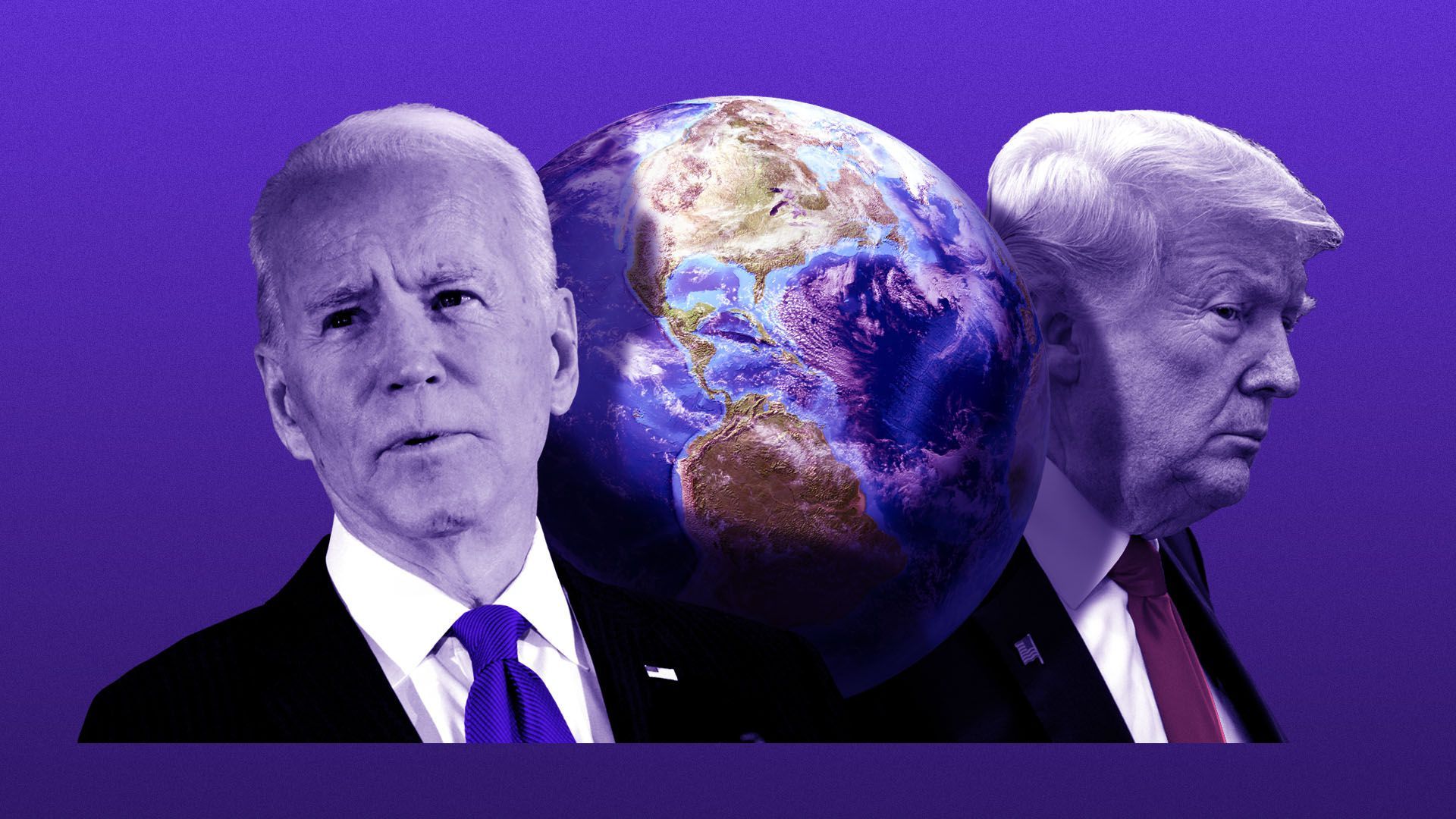
Photo illustration: Sarah Grillo/Axios. Photo: Bastiaan Slabbers/NurPhoto, and Bastiaan Slabbers/NurPhoto via Getty Images
In 50 days, America will either double down on the disruptive force of America First or elect a man vowing to put the international order back together again.
Why it matters: America still has the world's biggest economy, most powerful military and deepest network of alliances. But it is unclear what it intends to do with them.
Breaking it down: New polling from the Eurasia Group Foundation indicates that Americans broadly want their leaders to strike (or restore) international agreements while avoiding military conflict under nearly all circumstances.
- In an election season shaped by crises at home, voters tend to want their president to prioritize challenges within America’s borders while limiting their ambitions and expenditures beyond them.


By the numbers: Based on responses to a series of foreign policy questions, the report finds that 38.6% of Americans — the largest group — believe the U.S. should increase its diplomatic efforts abroad while decreasing its global military presence.
- Just 10.3% take the opposite view, favoring military strength over diplomacy.
- Meanwhile, 30.6% are “traditional internationalists,” committed to both military primacy and multilateral diplomacy (until recently, those views formed a strong consensus in Washington).
- The remaining 20.5% are “genuine isolationists” who believe the U.S. should shed its international obligations and go its own way.
- The results are strikingly similar for both parties (though the bipartisanship evaporates on more specific issues, like the Iran deal).
On one side: Trump's foreign policy has been fairly scattershot, and therefore difficult to categorize.
- Disengaging militarily from the Middle East and negotiating with North Korea's Kim Jong-un are fairly popular.
- But antagonizing allies, discarding international agreements and increasing defense spending are not.
The other side: Biden, meanwhile, has waxed and waned on military intervention over a long career, but he seems to fit the "traditional internationalist" mold.
- Despite pressure from the left, Biden has been making clear that he won't pull up stakes from Afghanistan, slash the Pentagon budget or suspend drone strikes, Axios' Hans Nichols and Margaret Talev report.
- “I cannot see him cowering because some progressives on the left have this misimpression on what these counterterrorism strikes entail,” former CIA director John Brennan told Axios.
- “Biden is on the conservative side of where the party is,” said Matt Duss, foreign policy adviser to Sen. Bernie Sanders. “But his advisers are very engaged in the conversation and are very aware of where the Democratic base is moving.”
The big picture: Bill Burns, president of the Carnegie Endowment for International Peace and a veteran diplomat, contends that the U.S. needs to carve out a new role for itself — neither isolationist nor swaggering superpower.
- At an Axios event on Friday, Burns emphasized the importance of engaging with allies to confront shared challenges like climate change or the rise of China.
- At the same time, he said, the U.S. must ensure the policies it pursues abroad — on trade or global health, say — also benefit Americans.
The bottom line: "Recognizing and deepening that connection between foreign policy and domestic renewal, I think, is going to be the single deepest challenge for several administrations to come," Burns said.
